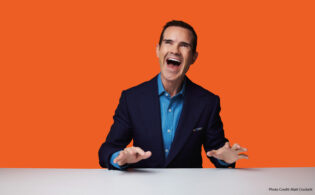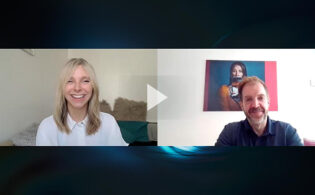As part of the Banijay Group, Banijay Rights can source scripted and unscripted programming from more than 120 production companies in 22 territories. CEO Cathy Payne leads teams located around the world who work with in-house and third-party producers, helping them finance shows with local roots but international appeal. Despite continuing shifts and heated competition in the global television business, demand for content remains high. Payne sees ample opportunities for a company with scale, a pipeline of product and the resources to bring a project to market efficiently.
 WS: What impact is the battle among global streamers having on the international production and distribution business?
WS: What impact is the battle among global streamers having on the international production and distribution business?
PAYNE: I see the distribution business affected three-fold.
Firstly, studio-backed streamers continue to hold their product for their own direct-to-consumer services while reclaiming certain library content as it comes out of license off other platforms. This has reduced the amount of content available to other services and traditional linear clients, which means they need to look elsewhere. You’ve seen the expansion of Netflix and Amazon studio bases as examples of countering this.
But at the same time, linear broadcasters are still performing extremely strongly. For instance, I was looking at recent Sunday night viewing figures in the U.K. and it’s quite clear that linear is not dead. Scripted series like Call the Midwife, Trigger Point and The Good Karma Hospital are delivering big audiences alongside very established factual programs, and traditional broadcasters are competing by expanding what were originally their catch-up services into unique VOD offerings in their own right—often comprising a heavily domestic flavor. This allows broadcasters’ commissioning budgets to focus across linear and VOD. Going forward, you will see an increasing number of content partnerships aligning with linear broadcasters to fund their original shows.
Finally, there’s the area of regulation and audience preference to consider. Local viewers like to see local stories, as well as international ones. Layered on top of that, we are seeing increased regulation in relation to streaming services around local market spend. International streaming companies know they need to cater to those local audiences for both reasons, and this is evident through their increased domestic market commissioning.
When you combine all these waves, it really is quite an exciting time—it’s competitive for the best talent, best stories, best IP, and you have to be in a position to be able to offer that. When you have something that everybody wants, leverage can be very high.
WS: Production companies are banding together to create scale. Banijay certainly has scale. What opportunities do you see in this market for Banijay Rights?
PAYNE: We are very fortunate to be part of the Banijay group, as this provides Banijay Rights with a product pipeline from our companies. That said, we still have to compete for said product, and my mantra remains in place that I don’t want any internal producer to work with Banijay Rights unless they feel we’re doing the best possible job for them.
For those distributors who do not have an in-house product pipeline, it can be very challenging securing product in a competitive market. But yes, Banijay does offer scale; and when you work with Banijay Rights, you’re dealing with a global team of sales experts located in key territories. They know their markets and are deep into the individual ecosystems of those territories.
It always helps that our production companies are supported by strong central services such as Creative Networks, Banijay’s ideas powerhouse led by Lucas Green and James Townley. The ability to internally share so many production learnings is invaluable. Covid-19 is a good example of this, as we had multiple territories impacted at different times to different degrees, with each informing a decision from one to the next. The upside to this is huge, especially when production calls for an international location or different productions are sharing the same location or services.
Having scale also means we are able to make investment decisions fast and early. It also boosts the group’s ability to provide resources that support producers in longer-term development or acquiring specific IP. As a result, this certainly provides more options to our production companies.
WS: Would you give examples of how you have helped writers or producers finance and distribute their shows?
PAYNE: We have always been involved at a very early stage. We sit down with our production partners and discuss their upcoming slates at the first opportunity, therefore facilitating a lot of international market feedback that flows into the process. We work on indicative financing plans and will review various options to market. We read everything from treatments to scripts.
WS: What scripted shows are you offering clients?
PAYNE: We’re very lucky that in 2022 we have several returning, much-loved franchises combined with new releases. Among our new, premier scripted offerings is Rogue Heroes for the BBC, a big piece from the Banijay UK-owned production company Kudos and based on Ben Macintyre’s book about the formation of the SAS. This is penned for television by none other than Steven Knight, the international superstar writer behind Peaky Blinders. Rogue Heroes is about as big as it gets in British scripted.
Meanwhile, we’re all excited about the upcoming landmark historical drama Marie Antoinette, from Banijay Studios France and CAPA Drama for Canal+, penned by Deborah Davis, the writer behind The Favourite. Deborah is known for her in-depth research, and this new series delivers new insights into the incredibly modern and avant-garde young queen.
In addition, we have another Kudos series, Then You Run, a dark but at times humorous thriller commissioned by Sky for the U.K., Germany and Italy and based on Zoran Drvenkar’s novel You.
I’m also really surprised at how much business we’re doing with what I call our “super-domestic programming,” which by nature can often be a little lighter in tone. Signora Volpe, My Ballerina and Detective Maria Kallio are three that sit in this banding, all of which are attracting a lot of attention.
WS: Also getting a lot of attention are big-budget shows. Does a large budget always mean a show will be a hit?
PAYNE: A hit to me is a combination of two things: reaching the intended audience and doing great business for the channel or platform and delivering financial reward for the producers through strong international syndication. Of course, while scripted budgets are only going in the one direction—upward—the size of the budget does not guarantee success.
WS: Unscripted is also a very big part of Banijay Rights’ offering. What trends do you see in unscripted?
PAYNE: Food remains a strong trend, and our leading offering in this space continues to be MasterChef. “Real people, real food” is a phrase we’ve always attached to MasterChef, and with the huge success of the format globally, it’s clear to see how well this show resonates. In February, we landed one of our most significant deals of the year to date when the BBC agreed to a six-year commitment to four MasterChef franchises in the U.K.
I’m also seeing huge growth in biographical pieces across the board. We saw the huge success of the Workerbee documentary event series Janet Jackson on Lifetime and A&E, which achieved an amazing audience of 15.7 million. New biographical documentaries like these, it seems, are always in the news, and we will continue our interest in other people’s stories and personal journeys.
Nevertheless, audiences are also heading to architecture, engineering and design programming, and we have a large amount of home-based content that continues to perform.
WS: During the past two years, demand for content was very high, even during Covid-19 production shutdowns, delays and restarts. What is the outlook for this year and next? Do you see demand remaining high?
PAYNE: Yes, I do. So many premium scripted shows are coming back or have returned this year, with the likes of The Crown, Peaky Blinders (the sixth and final season), Succession and My Brilliant Friend, to name just a few.
As all these streaming services aim to grow and drive subscriptions, the hunt for content will remain competitive. And in terms of library content, the advent of AVOD platforms—including FAST—offerings is driving demand for well-established library franchises.
Seemingly, there have never been more places to watch content, and we will no doubt see how all these services team up or consolidate to compete in this ever-competitive space. For instance, the linear carriage platform deal becomes a VOD platform carriage arrangement. Meanwhile, the market will continue to be hot for IP, and the recent investments made in music and literary intellectual property prove that horizons continue to expand in this world.
WS: Are there any trends you see in financing?
PAYNE: Production costs have risen due to a number of factors: Covid protocols, demand for studios and crews, the cost of securing on- and offscreen talent and IP rights. Of course, offering scale helps in working through these financing challenges.






